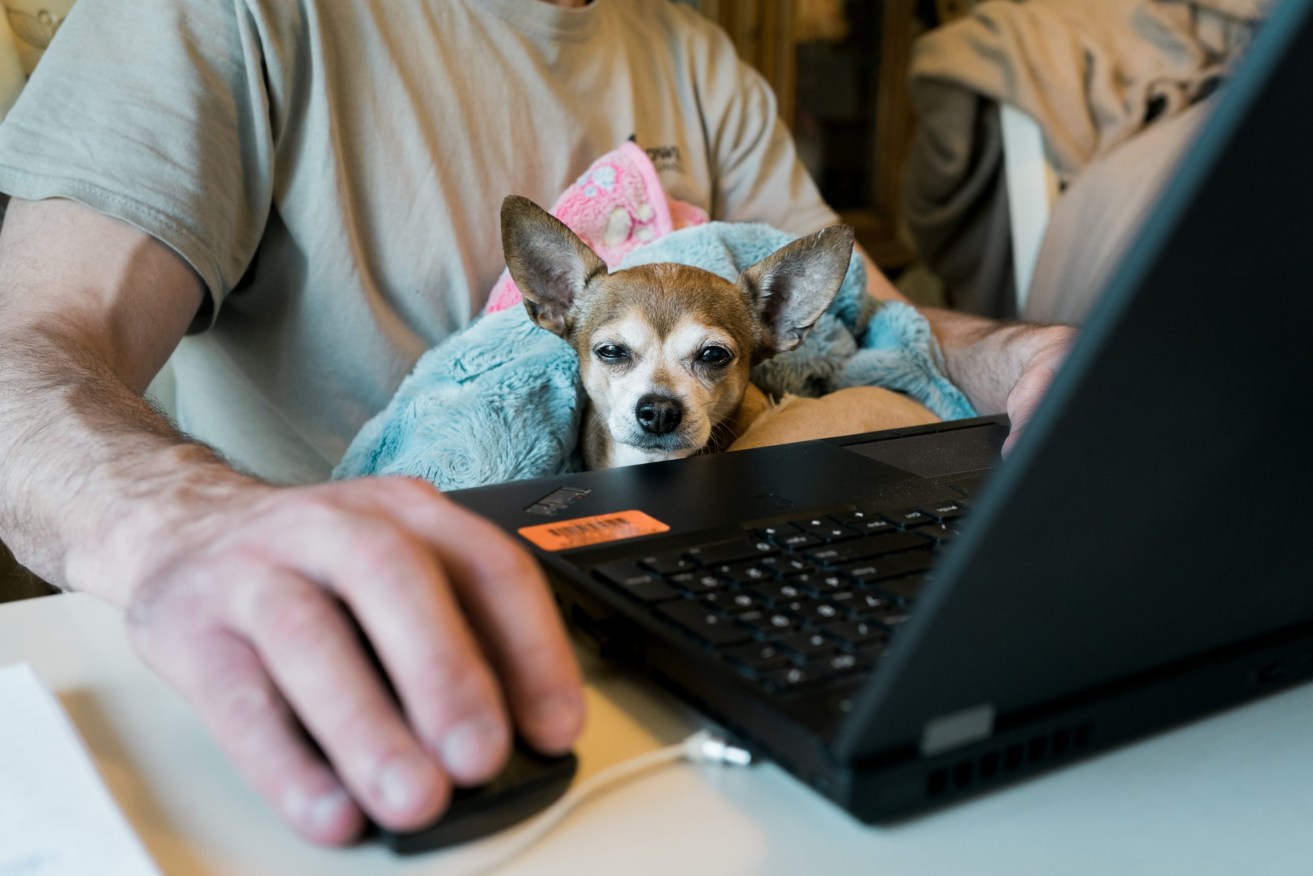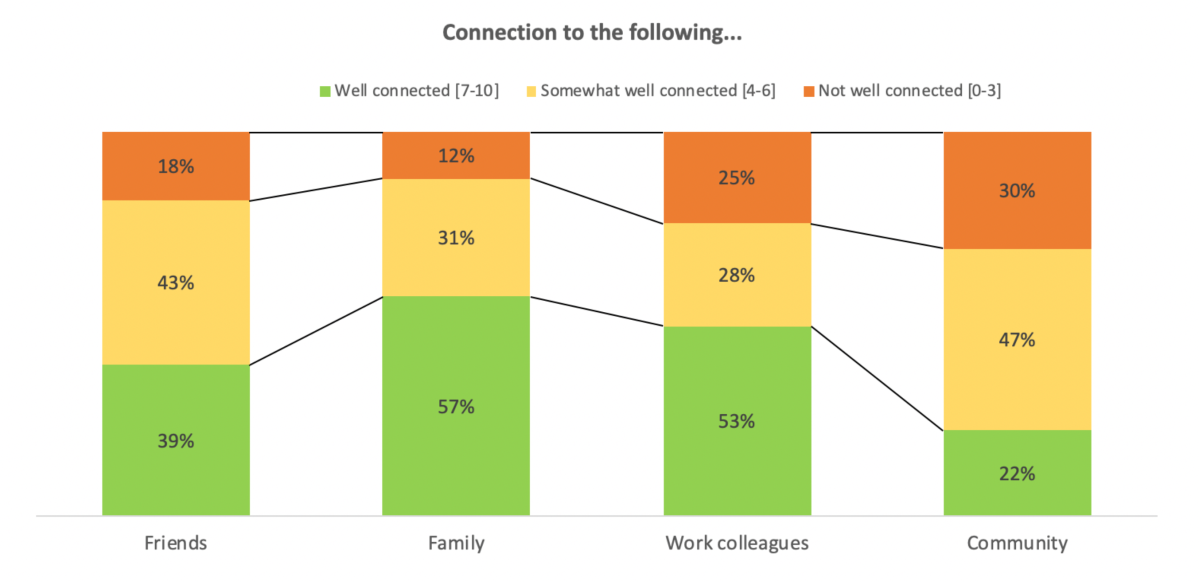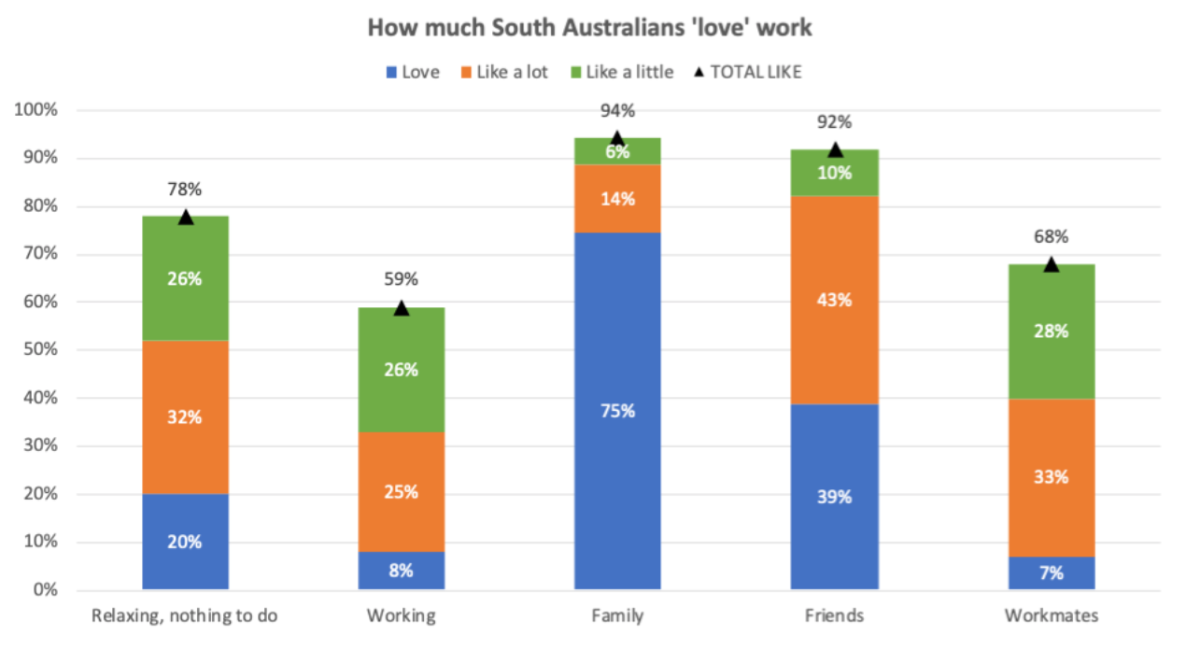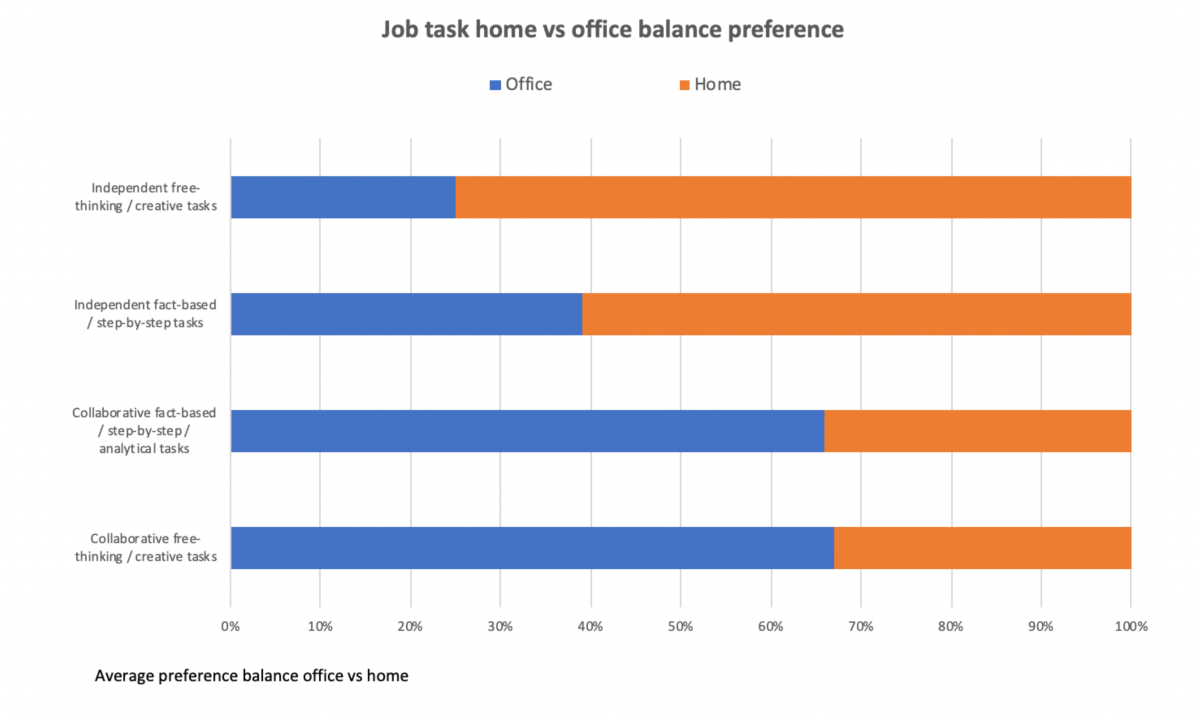The figures are in: working from home
After a forced trial, South Australians are now looking for balance in their work life, according to market and cultural research agency Square Holes in our weekly dive into the mood of South Australians.


Working from home, previously shunned by many employers as too much of a risk to trust staff to work without supervision, has become the forced norm for organisations big and small. This has allowed managers and their teams to learn, experiment and gain some perspective moving forward.
According to the focus groups and polls conducted by Square Hole in the past weeks, South Australians aren’t too keen on working, but have stayed connected while at home and would like to try a balance of at home and in office work in the future.
Square Holes founder and managing director Jason Dunstone said he found it interesting that, by and large, South Australians had maintained a sense of connection over the past two months.
He said that when measured at the end of April and start of May amongst 400 South Australians, 88 per cent felt connected with their family.
“Many felt more connected than usual as they were regularly checking in via phone, zoom and other platforms to ensure their family were coping, and just to stay in touch as they had more time to spare,” Dunstone said.
“Similarly, 81 per cent of those in paid employment generally felt connected with their work colleagues, but many people did not feel as connected with the community and their friends.”

According to Square Holes’ current national survey of 2,000 Australians on what Australians love to do, only 8 per cent of South Australians surveyed love their work, 59 per cent like their work overall, and 68 per cent like their workmates.
“These figure are below the national survey average of 67 per cent liking their work and 72 per cent liking their workmates” Dunstone said.
“Work is no comparison to time with family, friends and relaxing with nothing to do.”

The experience of working from home will no doubt bring some changes to future office configurations and work arrangements.
“In Square Holes’ rapid survey of 100 of its panel members in paid employment at the end of last week, 78 per cent of those in paid employment have been able to work from home since social distancing practices were in place,” Dunstone said.
“Those able to work from home indicated an average of 81 per cent of their last working week was working remotely while prior to restrictions coming in they noted that on average 21 per cent, or one day in a five day week, of their working week was from home.”
The experience from working at home has increased understanding of which tasks are best performed at home or in an office.
“Things that take a lot of focused thinking and concentration, and require stretches of focused time to work on them are best to do away from the office,” one research participant said.
Dunstone said that deciding on what task to do while working from home was the most important determining factor and that many respondents would like to divide their work between these tasks and work locations.
“Critically, very few preferred remote working or office-based working completely irrespective of the task. It is about flexibility and balance,” Dunstone said.

Square Holes SA Mood Survey
Dunstone said that when asked what percentage of their working week respondents would prefer to work from home, the average percentage across the sample was to work remotely 58 per cent of their week, or around 23 hours in a 40 hour work week but it also depended on the nature of the job, home set-up and other factors.
If staff demand improved work-life balance, some employers will struggle to ensure all staff are productive, particularly if they have failed to build strong and trusting workplace cultures.
Dunstone said this was evident in the response from one research participant who was fearful of what this means for team productivity and bonding.
“I think in my case there are going to be a lot more requests from people to work from home. I think that could be very problematic. Having an individual deciding they want to work from home takes away from the rest of the group who are actually at work. You being over the shoulder where you can quickly ask a question or contribute… It’s almost like that individual is opting out of the broader team,” the research participant said.
The Square Holes analysis of its latest Mind and Mood survey data identified factors having greater contribution to overall mood.
“When contributors to mental health were analysed, physical health, financial health and family were correlated with an individual’s mental health in that order,” Dunstone said.
He said changing the way we work has ramifications for work culture, office space and design, and home design and will be a challenge to navigate.
“What is clear is the way in which we work will change forever more,” Dunstone said.
“This will likely be one of, if not the single biggest, change in behaviour from COVID-19.”
Visit the Square Holes website for more insights on work or to get involved in the South Australia Mind and Mood Research.




